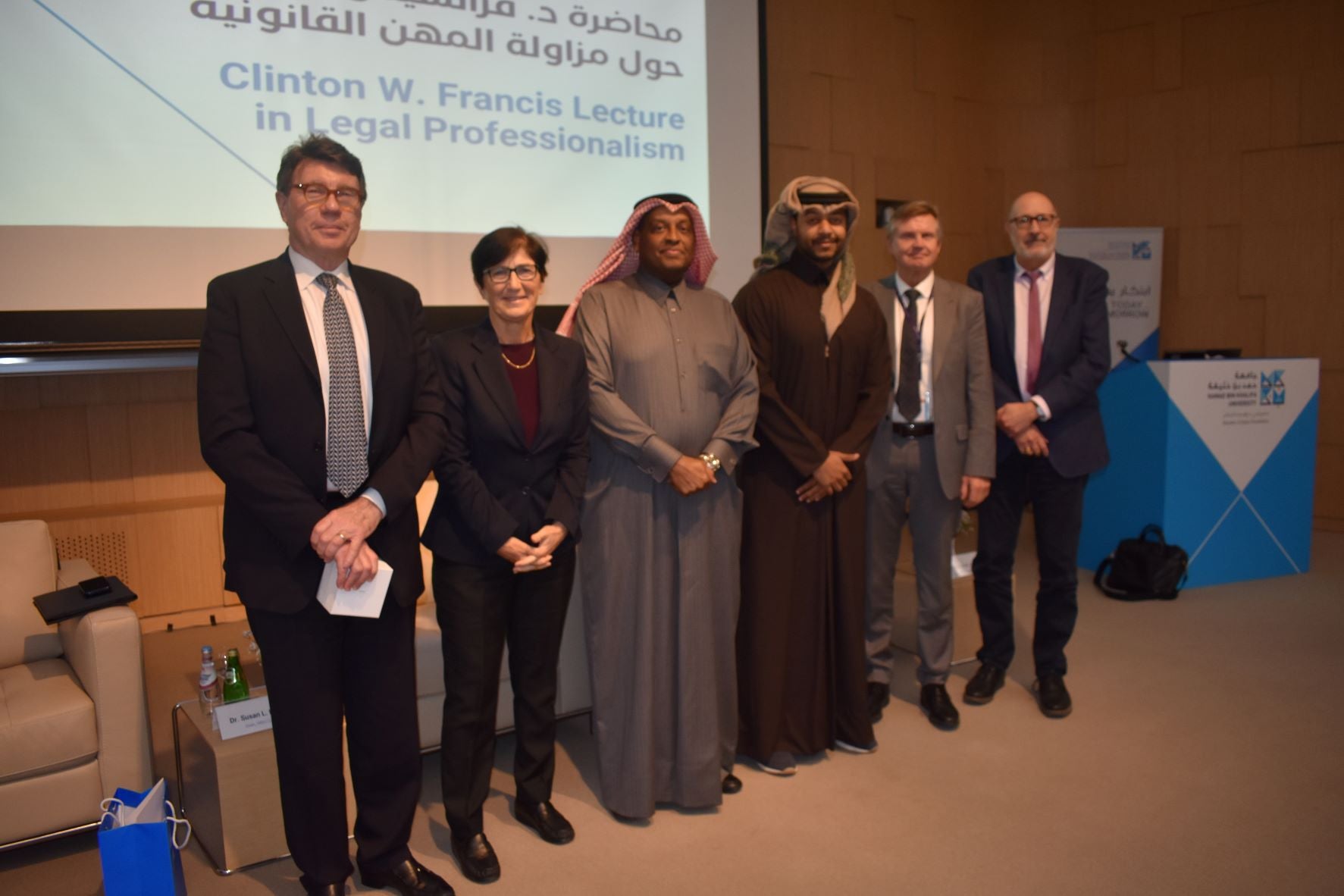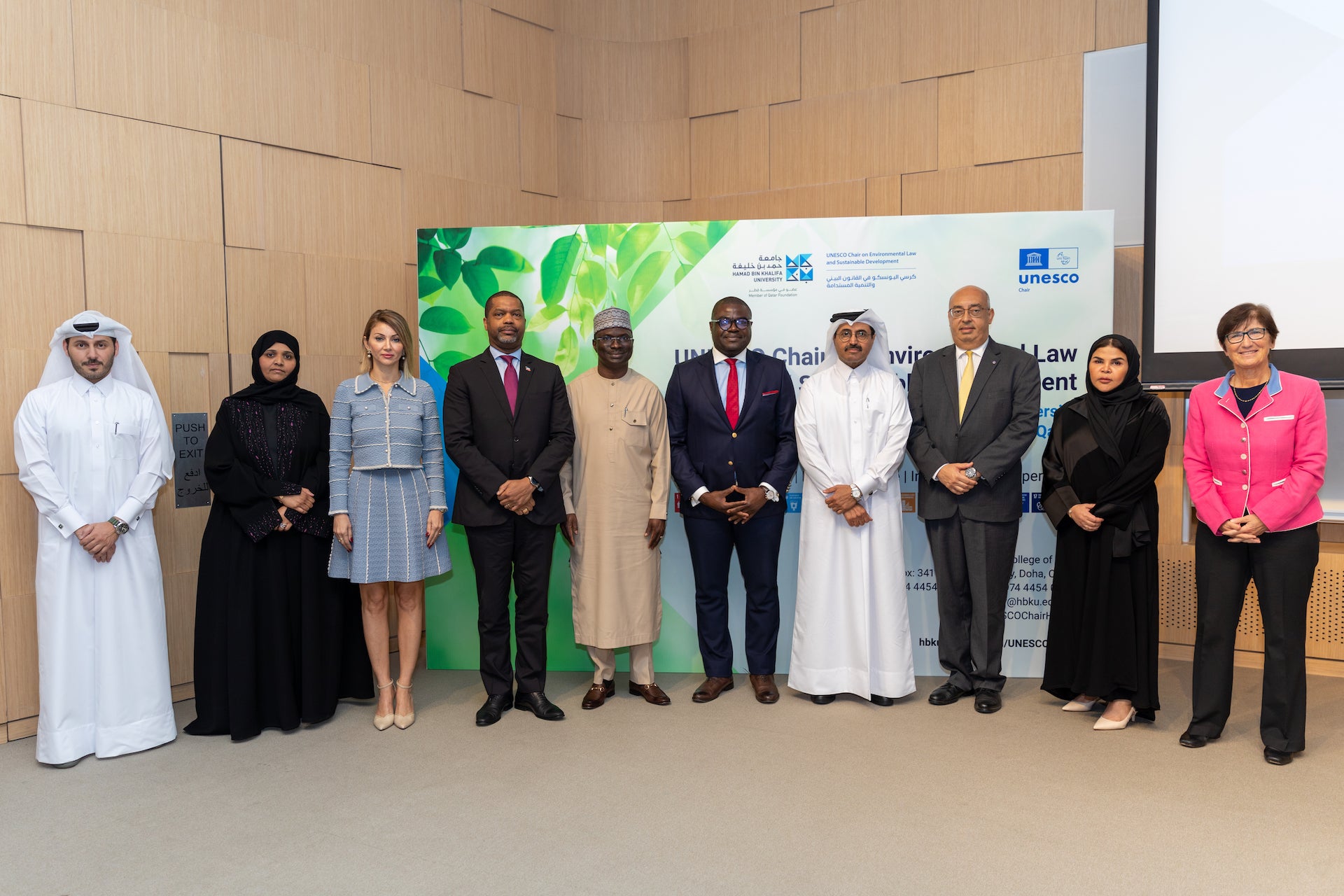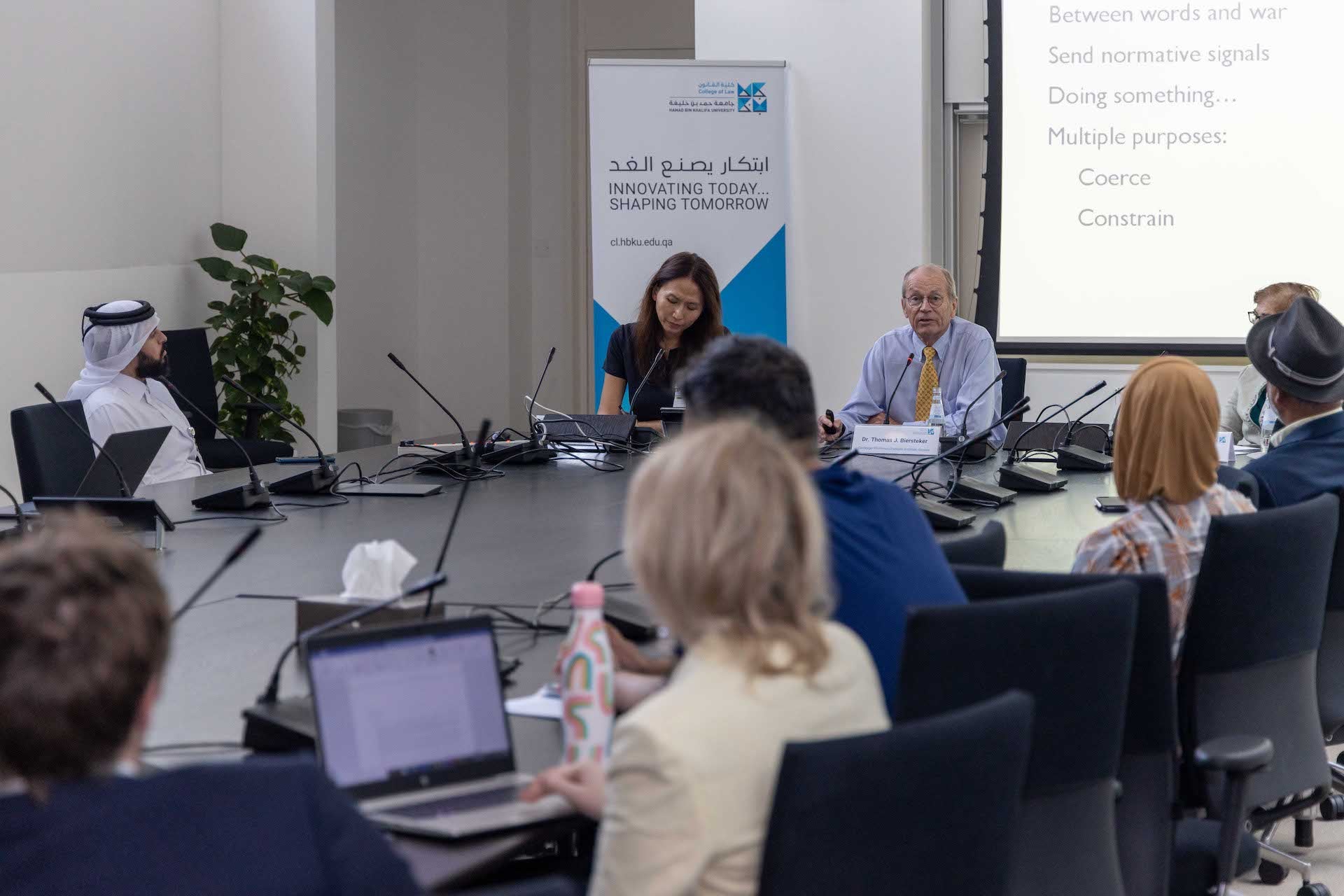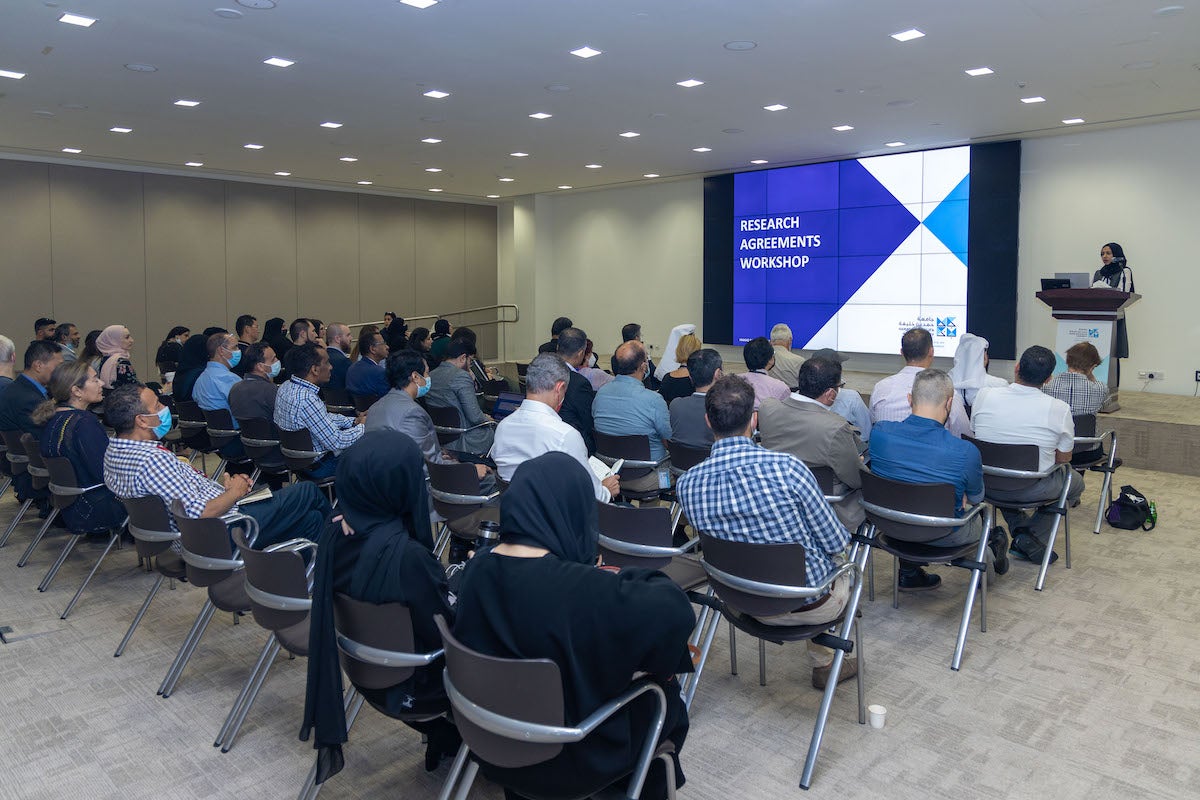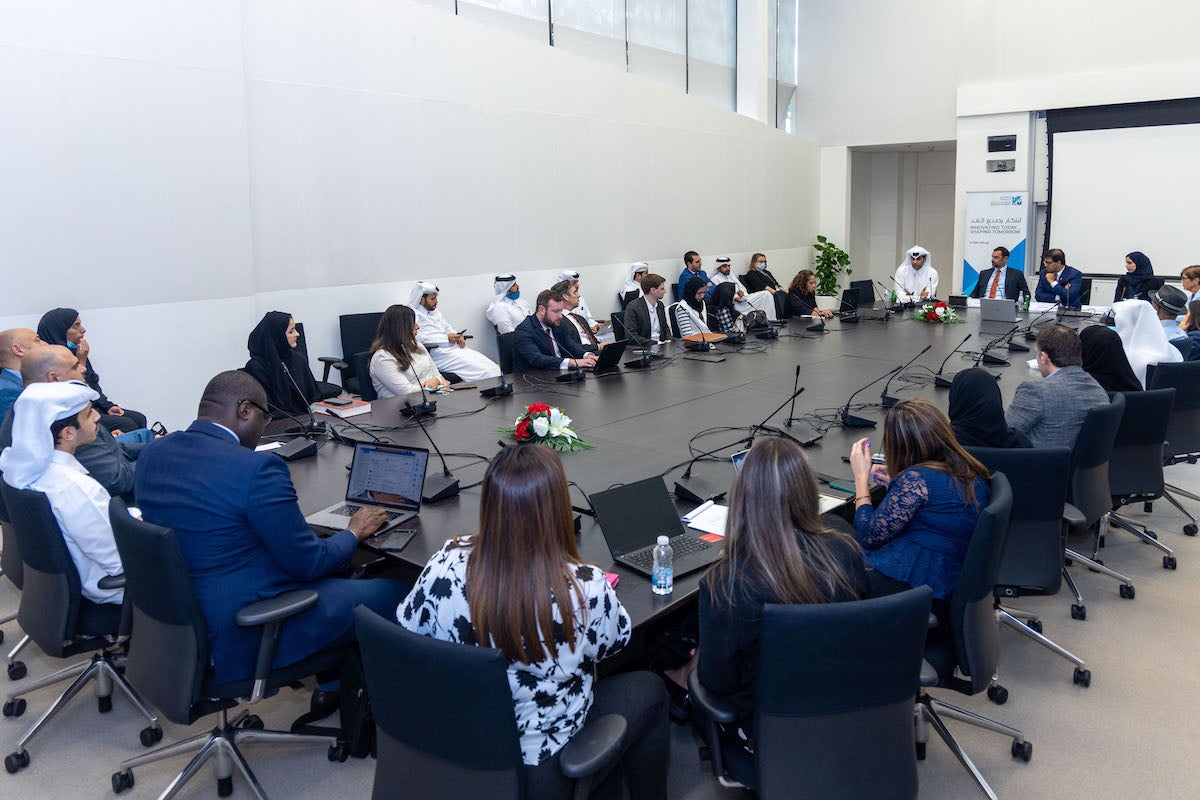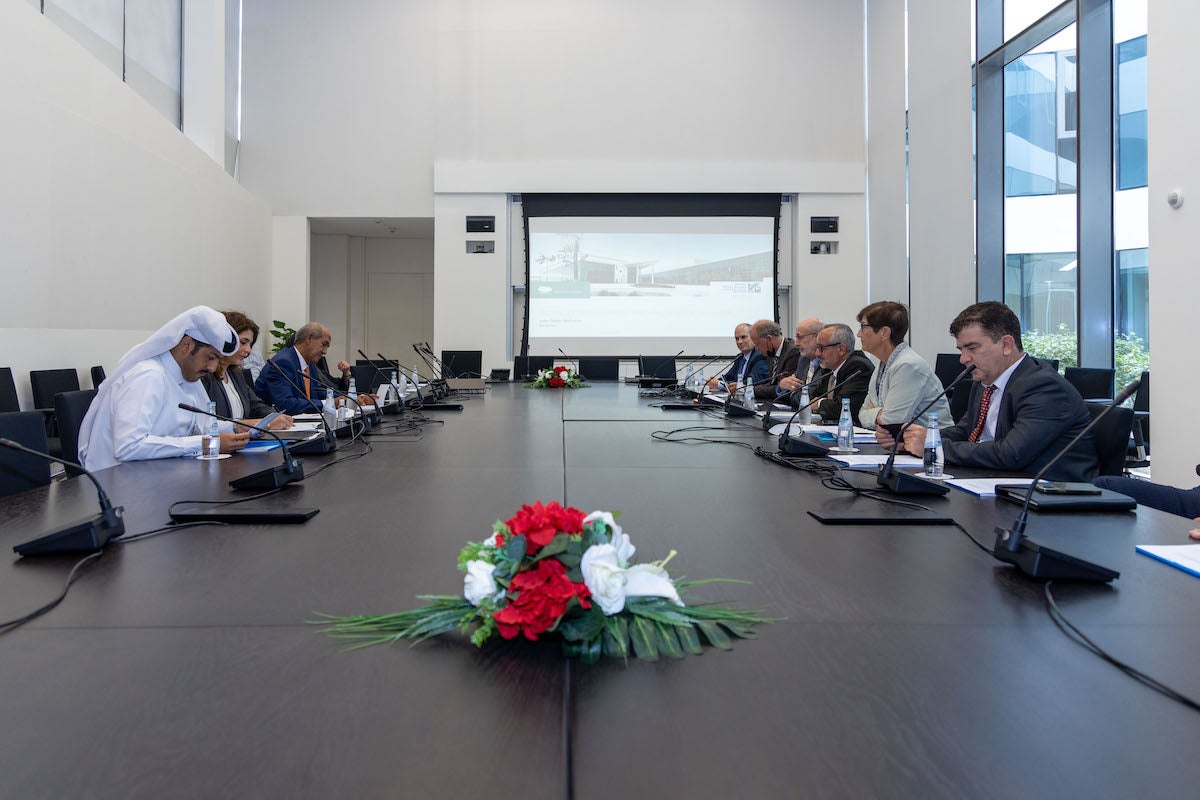International conference facilitates stakeholder dialogue between law scholars and practitioners
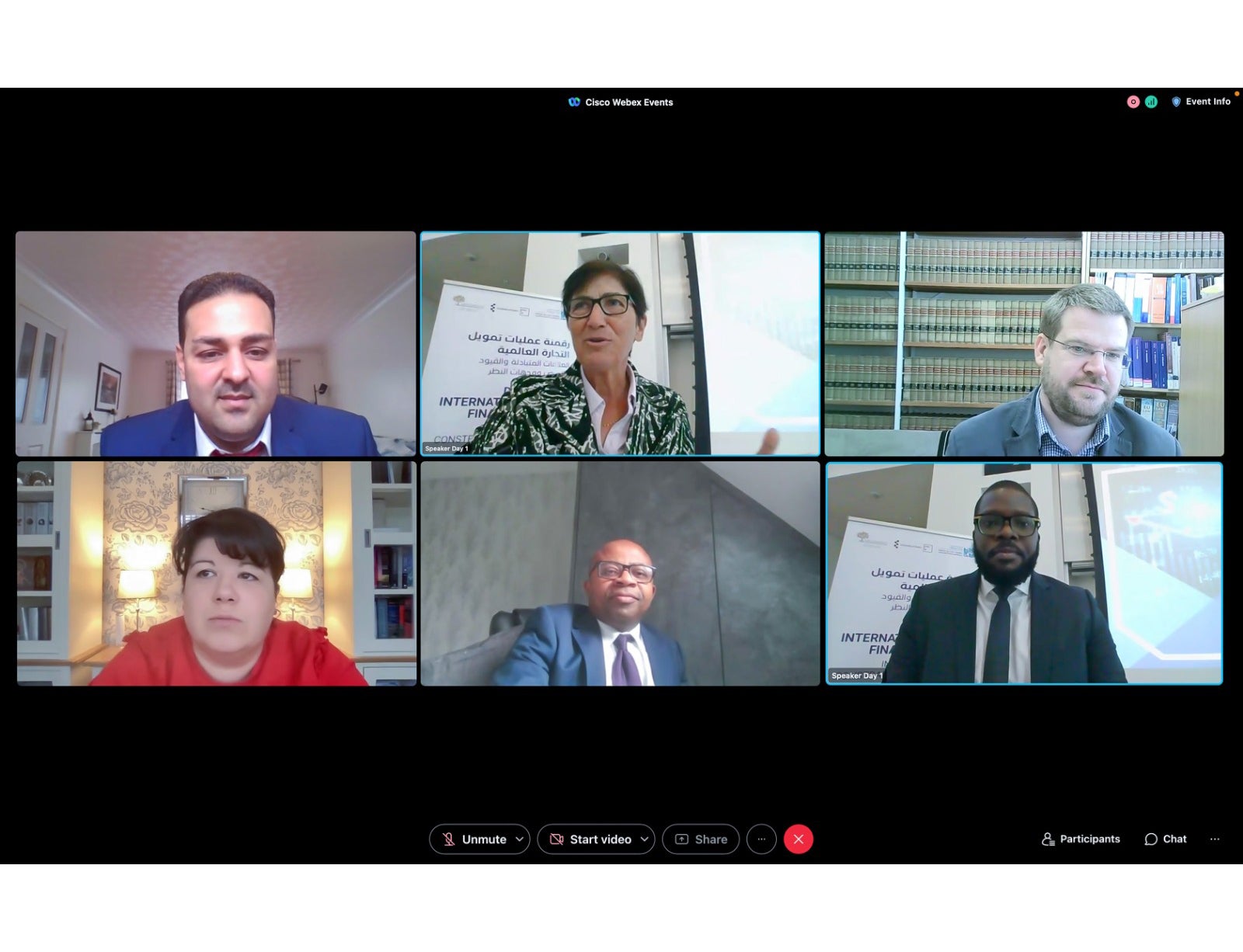
Raising the global visibility of its research and faculty expertise, the College of Law at Hamad Bin Khalifa University (HBKU), in collaboration with the University of Essex, School of Law, hosted an international conference to explore the challenges and opportunities in digitalizing trade finance processes.
The two-day hybrid forum from March 30-31 was part of the HBKU College of Law’s International Economic Law Seminar Series, which is supported by a Qatar National Research Fund (QNRF) grant. Titled “Digitalizing International Trade Finance Processes: Interrelationships, Constraints, Opportunities and Perspectives”, the event fostered multidisciplinary stakeholder dialogue between practitioners, policymakers, regulators, and researchers.
Framing the discussions was the legal impact of recent world events including COVID-19 and its acceleration of digital innovation. These developments have shaped international trade and the associated flow of money. Digitalization presents opportunities to overcome challenges in the current process.
The conference was co-chaired by Dr. Alexander P. Ezenagu, Assistant Professor, College of Law, and Dr. Onyeka Osuji, Designate Head of the School of Law, University of Essex. Distinguished speakers included senior academics and practitioners from HBKU, universities in the United Kingdom, Uganda, Kenya, Canada, and Qatar, the United Nations Development Programme, African Development Bank Group, the Bank of Kigali, the Rwanda Finance Limited, and Power Bank, an international Islamic investment bank registered with the Qatar Financial Centre.
Panels focused on the spectrum of issues tied to digitalization and trade, the political economy, intellectual property and business law. These include innovative technologies (cryptocurrencies, optical character recognition, artificial intelligence, and robotics), regulatory challenges, sustainable finance, and social justice. Referring to events such as the Qatar-GCC trade embargo and the Russia-Ukraine conflict, speakers articulated tentative proposals for how digitalization can speed up new trade relationships and, by reducing human interaction and the movement of papers, significantly address illicit financial flows. They also argued for adopting a more holistic approach to digitizing trade finance to advance efforts.
Dr. Ezenagu, of the College of Law, said after the event: “We thank the University of Essex, School of Law and all our speakers for sharing substantial knowledge over the two days. We also thank QNRF for its support of this conference, which brought together multiple expert perspectives and contributed to an understanding of the digitalization of the entire trade process.
Adding to that, Prof. Onyeka Osuji, Head of the School of Law-Designate, University of Essex, said: “Our valuable exchanges articulated insights and solutions for improving the legal and institutional framework at the national, regional, and international levels. We believe that this is the first of many collaborative research initiatives with the College of Law at HBKU, as we work together to reframe aspects of the law to be more suitable for technologies in the current international trade finance process.”
The College of Law regularly hosts public lectures, conferences, and other events to discuss the diverse legal systems that inform Qatari law as well as complex events and transactions, both in the region and around the world.
Related News
